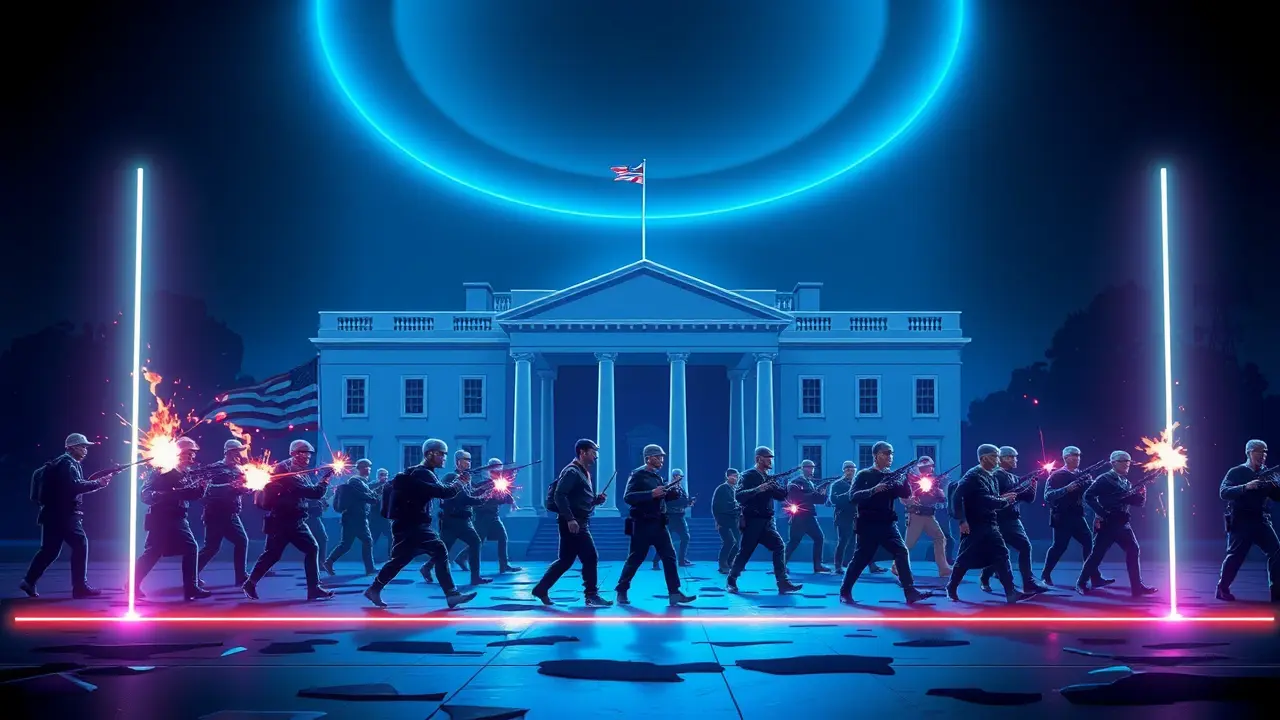
Politicsconflict & defenseMilitary Operations
Trump orders military preparation for action in Nigeria.
RO
Robert Hayes
21 hours ago7 min read
In a move that has sent seismic ripples through the corridors of international diplomacy, the White House has issued a directive for the United States military to prepare for potential action in Nigeria, a stark escalation rooted in President Trump's assertion of addressing the purported targeted killings of Christians. This development, however, sits atop a deeply contentious foundation, as a chorus of regional experts and humanitarian organizations swiftly counters the presidential narrative, presenting evidence that there is no factual basis to support the claim of Christians being disproportionately targeted in the nation's complex and multifaceted conflicts.To fully grasp the gravity of this order, one must look beyond the immediate headlines and into the intricate tapestry of Nigerian society, a nation sharply divided along ethnic and religious lines where the predominantly Muslim north and the predominantly Christian south have experienced cyclical violence, yet where the primary drivers are often resource competition, political marginalization, and the brutal insurgencies of groups like Boko Haram and the Islamic State West Africa Province, rather than a systematic, religiously motivated campaign. Historically, such a unilateral preparation for military intervention by a global power evokes parallels to previous American engagements in Africa, from the Black Hawk Down incident in Somalia that illustrated the perils of urban combat and mission creep, to the more recent, limited counter-terrorism operations in the Sahel, raising critical questions about the strategic objectives, the legal authority under which such an operation would proceed, and the potential for catastrophic blowback in an already volatile region.Analysts from the Council on Foreign Relations have been quick to point out that this directive appears to bypass the traditional, painstakingly built partnerships with the Nigerian government and multilateral bodies like the African Union, risking the undermining of sovereign integrity and potentially alienating a key regional ally at a time when collaborative intelligence and security sector reform are deemed paramount. The possible consequences are manifold and alarming; a direct U.S. military footprint, however limited initially, could be framed by jihadist propagandists as a crusading occupation, serving as a potent recruitment tool and potentially unifying disparate militant factions against a common foreign enemy, thereby exacerbating the very instability it seeks to quell.Furthermore, this action cannot be divorced from the domestic political landscape, where the rhetoric resonates powerfully with a specific evangelical constituency, suggesting a disquieting interplay between foreign policy and identity politics that may prioritize narrative over nuanced, evidence-based statecraft. The Nigerian government's response has been one of measured but firm opposition, emphasizing its own ongoing military campaigns and the principle of non-interference, while the United Nations has issued cautious statements urging all parties to prioritize dialogue and respect international law. As the world watches, the specter of a new, unpredictable front in American foreign policy looms, a decision that risks entangling the world's most powerful military in a conflict where the lines between friend and foe, cause and effect, are dangerously blurred, and where the ultimate price will almost certainly be paid by the civilian populations caught in the crossfire.
#military action
#Nigeria
#Islamist militants
#US foreign policy
#Trump
#Christians
#security
#featured
Stay Informed. Act Smarter.
Get weekly highlights, major headlines, and expert insights — then put your knowledge to work in our live prediction markets.
© 2025 Outpoll Service LTD. All rights reserved.